It smells
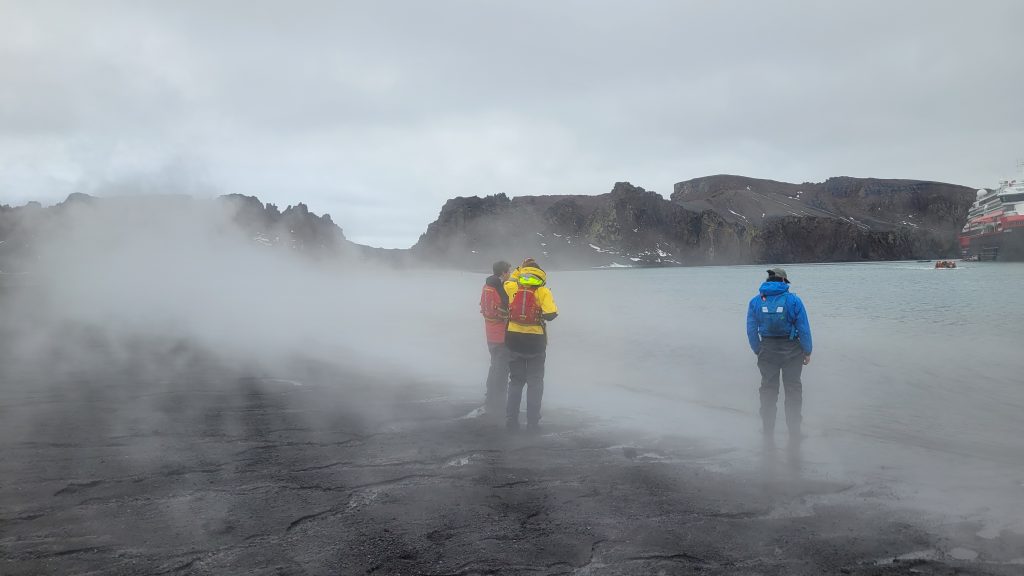
Like so many other places on the planet, Antarctica has a smell of its own. The smell of a place is one of those things that make travel irreplacable. No coffee table book, TV image or 3D immersive experience will ever truly be able to tell you how a place feels. Because a place’s feel is not just made up how it looks and sounds, but also of how you got there, of how the air feels on your skin, how the ground feels under your feet, and of course, how it smells.
To me, the most typical smells of Antarctica are a waft of foul eggs and the odour of penguin poop. You’d not expect Antarctica to smell of anything much – after all, most of it is covered in a thick layer of ice, and ice does not really have a smell. But our landings in Whaler’s Bay and on the tiny Hainaut Island taught me that this continent certainly comes with a smell of its own.
Whaler’s Bay is a small bay on Deception Island, the latter being so called because its appearance is deceptive: At first sight, it looks like just a regular island. But as you sail around it, there is a small inlet that leads you ‚inside‘ the island – because the island itself is actually the crater of an active volcano. At the inlet (called Neptune’s Bellows because of the strong winds that often funnel throught it), the walls of the crater dropt to below sea level, so the sea has flooded the massive crater. There’s lots of geothermal activity going on, and thick steam rises from the water along the black-sand shoreline, lending it a bizarre atmosphere. The steam has a distinctly sulphuric smell to it, which is pretty overpowering at first. But you quickly get used to it.
The crater itself is quite large, with a diameter of around 30 kilometres. In the heyday of whaling in the early 20th century, the protected bay it forms was used by whalers as a natural harbour. They would anchore their ships there and drag in the carcasses of the whales they had ‚harvested‘ for further processing (I hate the term ‚harvested – they weren’t ‚harvested‘, they were hunted almost to extinction and cruelly killed, not ‚harvested‘ like potatoes, but that’s just a side note). An old whale oil boiler and whale oil storage tanks at the beach that we land on – aptly named „Whaler’s Bay“ – tell the tale. I am thankful I only have to put up with a bit of volcano odour and not the vile stench of the hundreds of rotting whale carcasses that used to line the shore.
Hainaut Island has thankfully not been through such violent times. I like to think of Hainaut Island as the Russian doll of islands: It essentially just a large rock in the middle of a bay on the slightly larger Trinity Island. Hainaut island is home to a small colony of gentoo penguins. The penguins‘ eggs hatched a few weeks ago, and the little chicks are absolutely adorable. Meanwhile, the colony has been lived and pooped in for several months – which means that rather a large amount of guano has accumulated. The smell of it lingers all over the island, and every now and then, you get an extra helping of it when the wind turns unfavourably. Expedition Team members are posted at various points across the tiny island, which is barely a square kilometre in size, to help guests, answer questions, and make sure that guests and penguins alike are safe. We spend several hours close by the colony, and as much as we all love penguins, we are grateful to leave at the end of the day. However, as we leave the penguins behind, we don’t manage to do the same with their smell. It has drenched our hair, our clothes, all our belongings, so we take it back onboard and into our cabins. It took about a week for the smell to finally evaporate from my cabin – a truly unforgettable experience!
But – would I stand in a penguin colony or on a weirdly warm beach that looks like a sci-fi movie scene all day long again? Oh yes, any time!
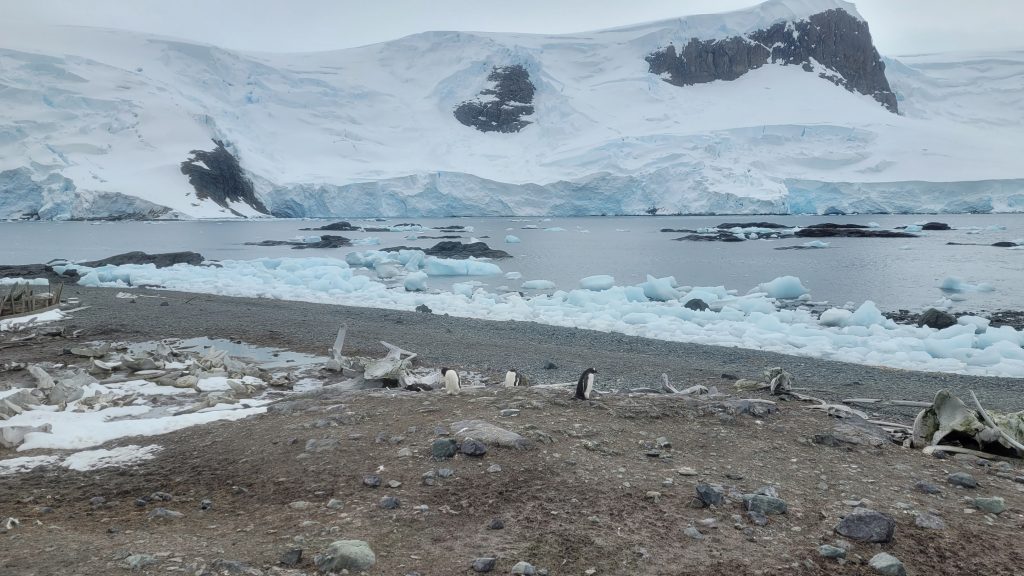
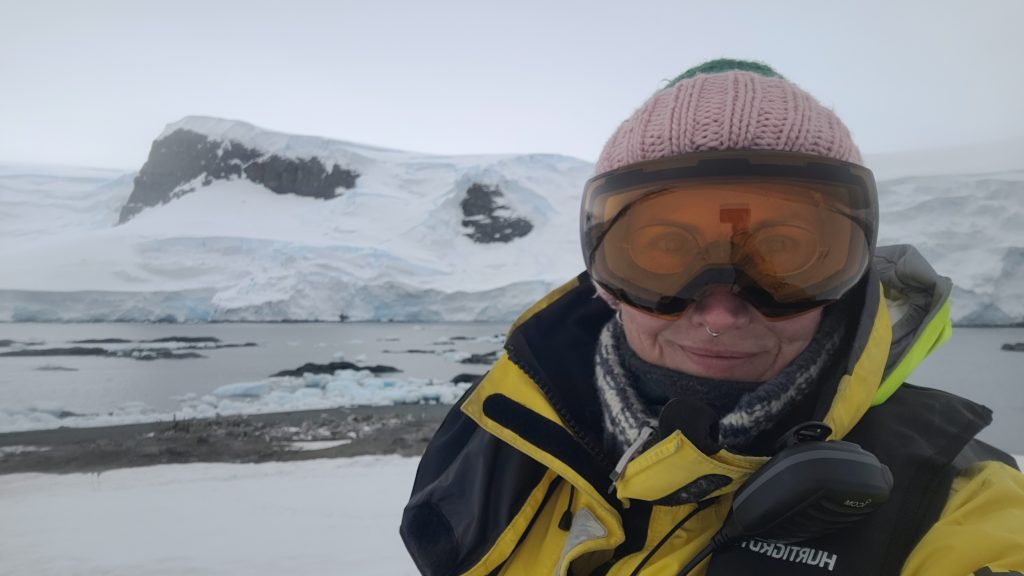
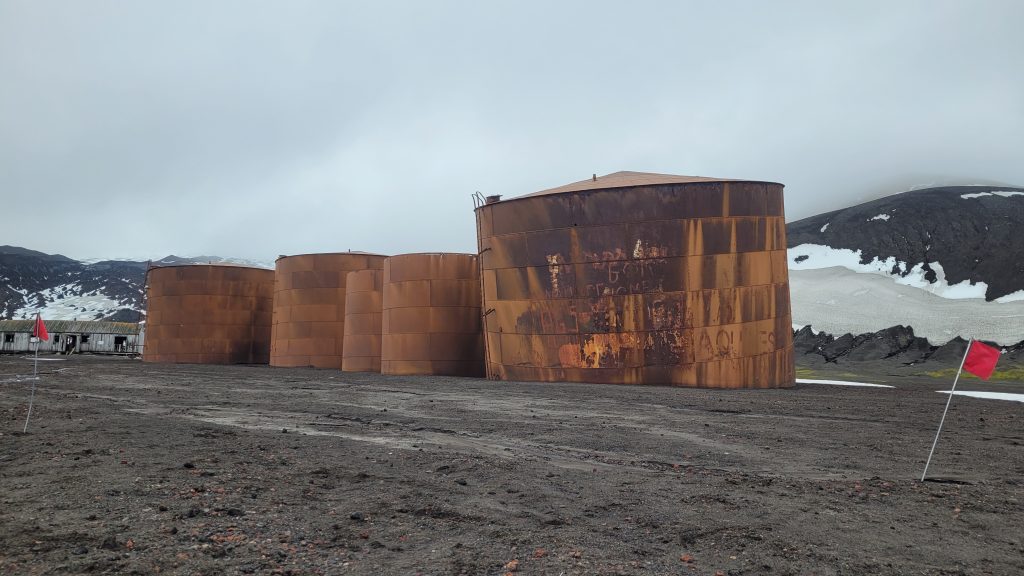
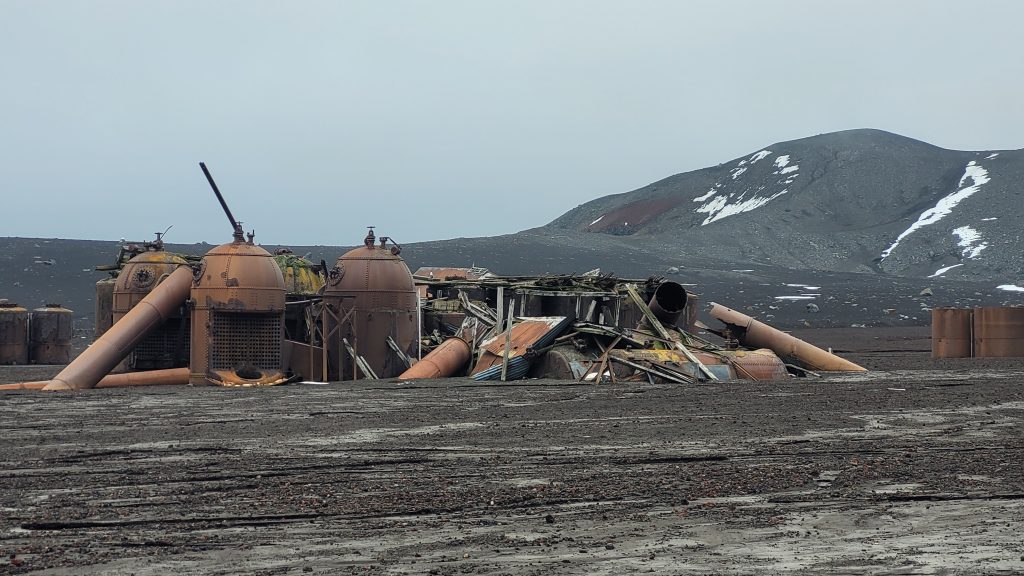
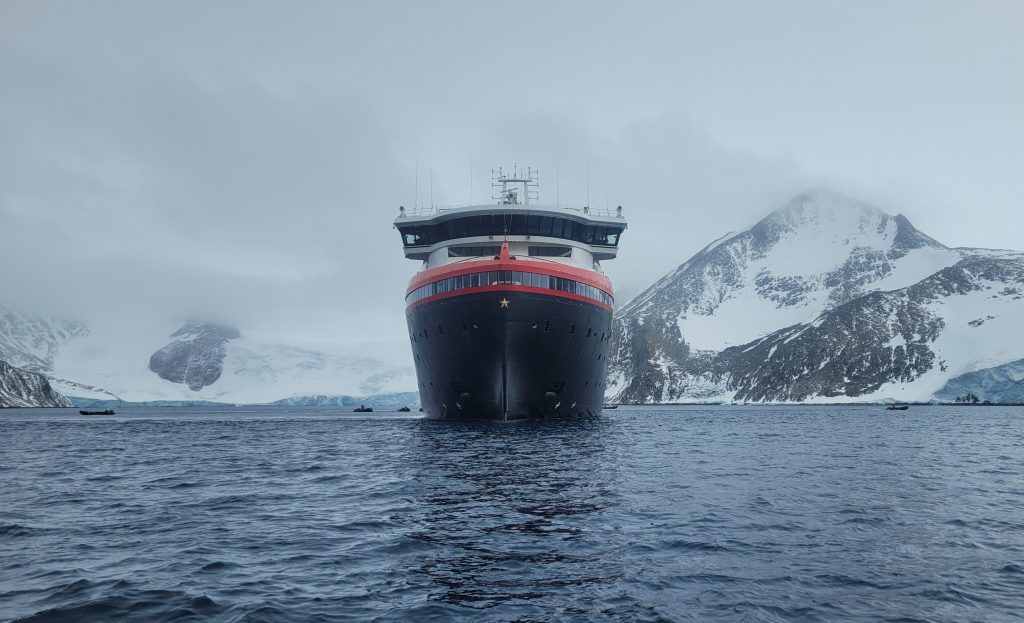
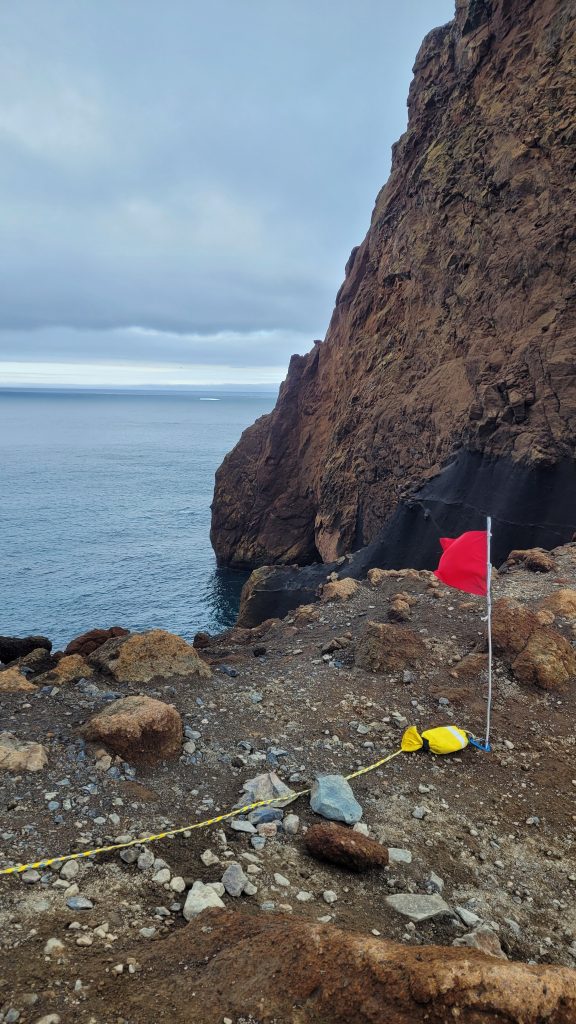
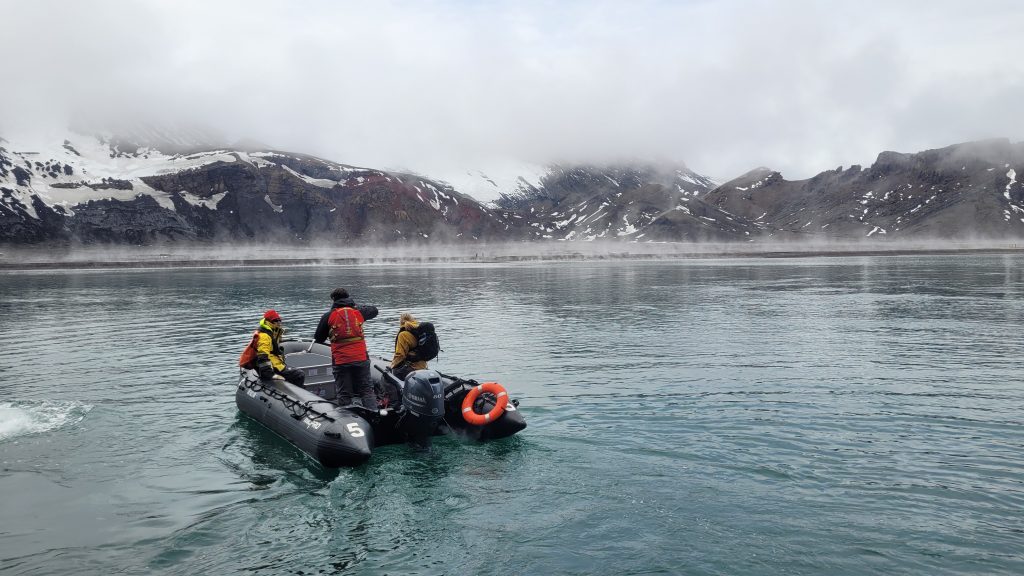
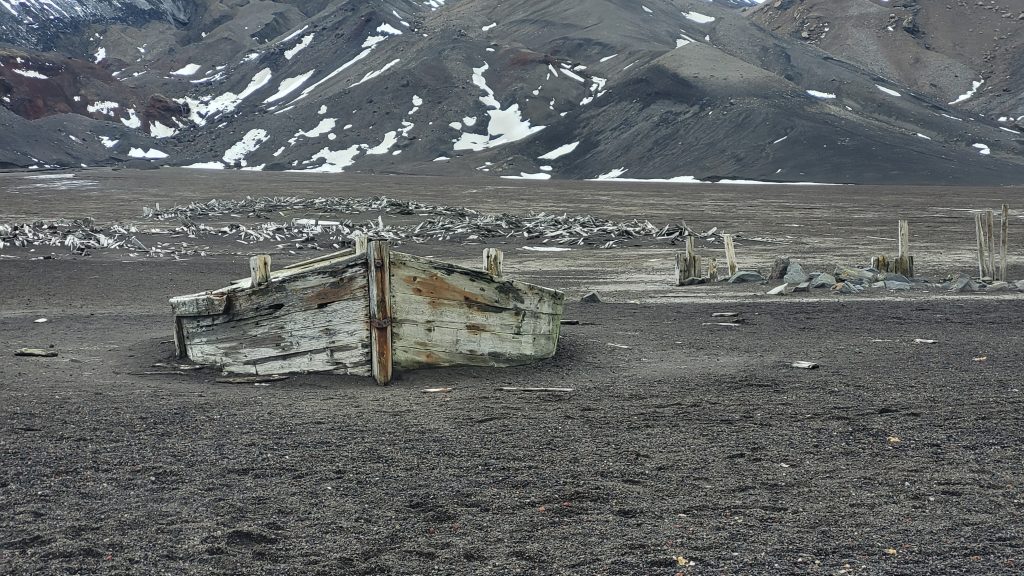
Eine Antwort
Just having a break from putting the house to sleep, love the blog. Love your style, love the pictures. You’re so right about the feel of a place, and you have done a lovely job of describing it for someone who couldn’t really face the distance at this time of life. It really is almost like being there. Thank you so much.